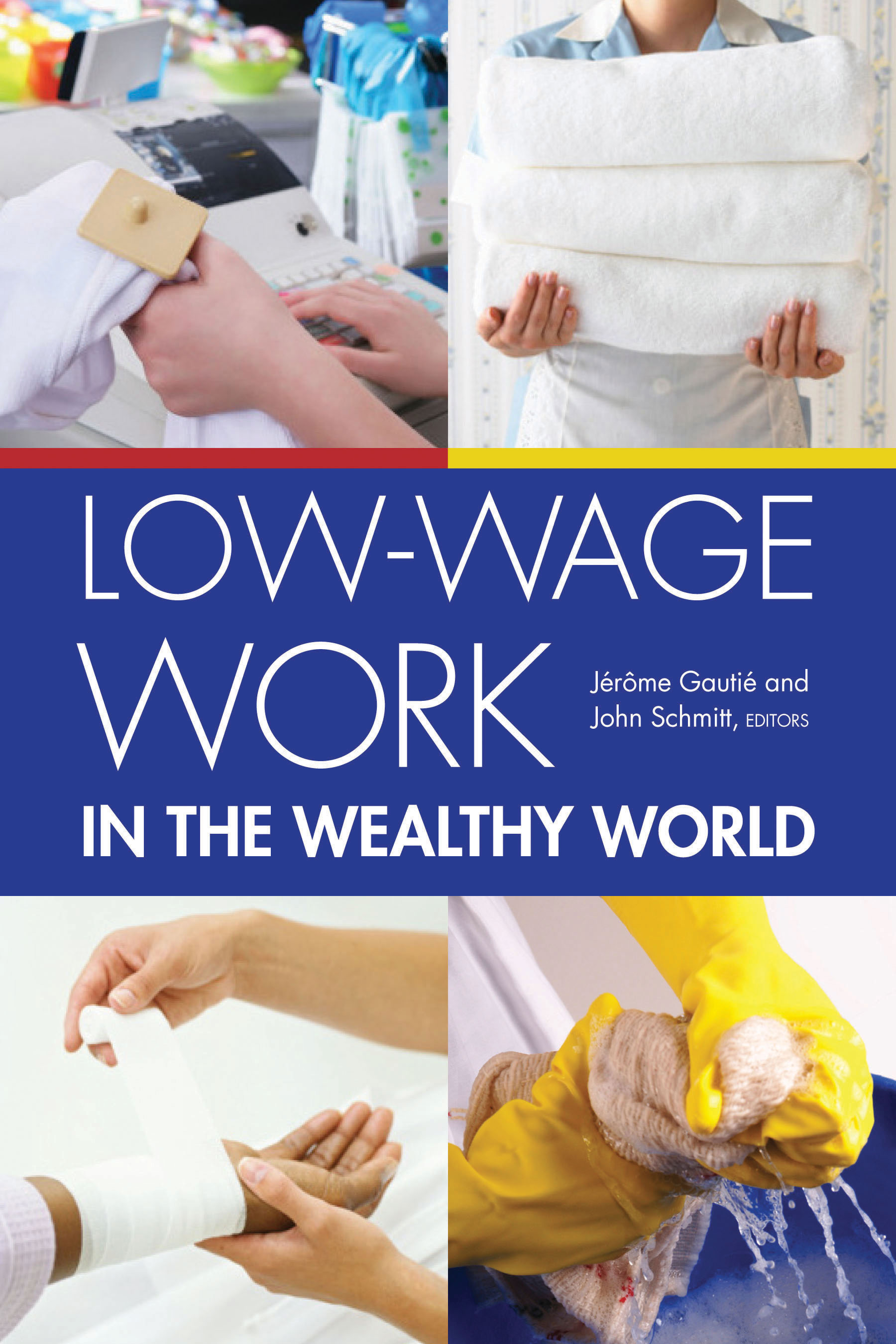Where Bad Jobs Are Better
RSF books are also available from:
Winner of the 2019 Distinguished Scholarly Monograph Award Presented by the Labor and Labor Movements Section of the American Sociological Association
Winner of the 2018 William G. Bowen Award Presented by the Industrial and Labor Relations Section of Princeton University
“If you think declining job quality is an inevitable outcome of globalization, computerization, or financialization, think again. Where Bad Jobs Are Better systematically dismantles doom and gloom arguments to offer an empirically-based account of how reasonable reforms to U.S. employment and labor law could help ensure that hourly retail jobs are at least pretty darn good. Françoise Carré and Chris Tilly show how institutional structures, social norms, and worker voice combine to create meaningful variation in the quality of seemingly similar retail jobs. No book on the retail sector approaches either the insights or the comprehensiveness as that offered by Where Bad Jobs Are Better.”
—Susan Lambert, associate professor, School of Social Service Administration and codirector, Employment Instability Researchers Network, University of Chicago
“This richly comparative book decisively punctures the myth that retail jobs are inherently bad jobs. By comparing two retail sectors in the United States and retail jobs in seven countries, Françoise Carré and Chris Tilly show how institutions shape the quality of retail jobs and point to ways that bad jobs in retail and other service sectors can be upgraded.”
—Arne L. Kalleberg, Kenan Distinguished Professor of Sociology, University of North Carolina at Chapel Hill
“Retail is the largest employment sector in the United States—and Françoise Carré and Chris Tilly offer the most comprehensive and thorough analysis of the management and employment practices in retail that we have. Based on ten years of careful field studies coupled with national data, they explain how the industry has evolved, why so many retail jobs are ‘bad,’ and why this is not inevitable. Their rich descriptions of working conditions across many retail sectors and countries show the negative effects of bad jobs on working families, and show that employers have a choice in their business and labor strategies. By tracing Wal-Mart across several countries, they show how the same employer can behave differently in different environments. Timely, accessible, engaging, important—Carré and Tilly speak to a broad audience of academics, practitioners, and policymakers—providing key insights on how to turn bad jobs into good ones.”
—Rosemary Batt, Alice Hanson Cook Professor of Women and Work and chair, Department of Human Resource Studies, ILR School, Cornell University
Retail is now the largest employer in the United States. For the most part, retail jobs are “bad jobs” characterized by low wages, unpredictable work schedules, and few opportunities for advancement. However, labor experts Françoise Carré and Chris Tilly show that these conditions are not inevitable. In Where Bad Jobs Are Better, they investigate retail work across different industries and seven countries to demonstrate that better retail jobs are not just possible but already exist. By carefully analyzing the factors that lead to more desirable retail jobs, Where Bad Jobs Are Better charts a path to improving job quality for all low-wage jobs.
In surveying retail work across the U.S., Carré and Tilly find that the majority of retail workers receive low pay and nearly half work part-time, which contributes to high turnover and low productivity. Jobs staffed predominantly by women, such as grocery store cashiers, pay even less than retail jobs in male-dominated fields, such as consumer electronics. Yet, when comparing these jobs to similar positions in other countries, Carré and Tilly find surprising differences. In France, though supermarket cashiers perform essentially the same work as cashiers in the U.S., they receive higher pay, are mostly full-time, and experience lower turnover and higher productivity. In Germany, retailers are required by law to provide their employees notice of work schedules six months in advance. And as the authors show in a chapter on Wal-Mart around the world, while the company is notorious for its low-quality jobs in the U.S., in many countries including China and Mexico, Wal-Mart is unionized, pays more than its competitors, or both.
The authors show that disparities in job quality are largely the result of differing social norms and national institutions. For instance, weak labor regulations and the decline of unions in the U.S. have enabled retailers to cut labor costs aggressively in ways that depress wages and discourage full-time work. On the other hand, higher minimum wages, greater government regulation of work schedules, and stronger collective bargaining through unions and works councils have improved the quality of retail jobs in Europe.
As retail and service work continue to expand, American employers and policymakers will have to decide the extent to which these jobs will be good or bad. Where Bad Jobs Are Better shows how stronger rules and regulations can improve the lives of retail workers and boost the quality of low-wage jobs across the board.
FRANÇOISE CARRÉ is research director at the Center for Social Policy at the University of Massachusetts, Boston.
CHRIS TILLY is professor of urban planning at the University of California, Los Angeles.




